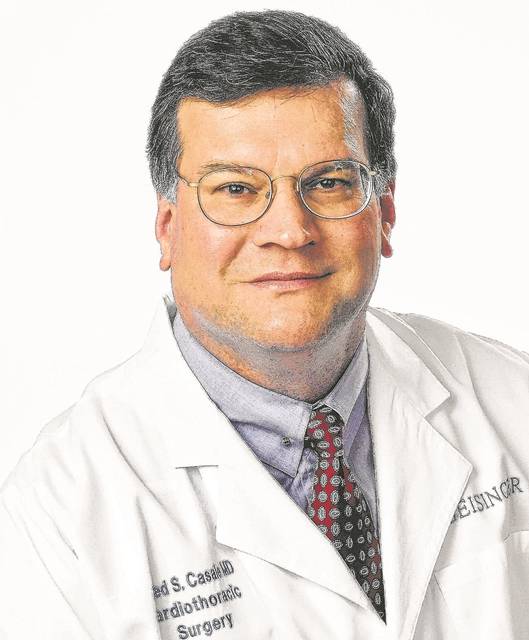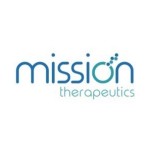
One of the biggest problems confronting us all is the Alzheimer’s crisis.
Every 65 seconds, a new brain develops Alzheimer’s disease in the U.S.
The Women’s Alzheimer’s Movement is calling upon each of you to make this a priority.
After all, how we respond to the Alzheimer’s crisis will tell us a lot about the character of our communities and our shared humanity.
A trailblazer for empowering women, Shriver uses her voice and her platforms to advance some of our nation’s most pressing issues.
Posts tagged as “AD”

Alzheimer’s disease, first discovered by Dr. Alois Alzheimer in 1906, is a progressive brain disorder that gradually reduces memory and cognition.
During this time, loved ones may seek the best available care to extend the life and independence of the patient.
The many facets of careBecause there is no cure for the disease, Alzheimer’s care can be long-term and should focus on more than just the medical aspect of the disease.
Alzheimer’s is a terminal disease, so emotional support services are just as important as medical and physical therapies.
Considering residential careAs Alzheimer’s reaches its later stages, your loved one will require around-the-clock medical care either at home, or in a residential care facility.

"The owner of the Denver Broncos relinquished control of the team before training camp in 2014, due to the onset and progression of Alzheimer’s Disease. President and CEO of the Denver Broncos Joe Ellis has been at the helm since."

"Researchers at the University of Texas (UT) reported Tuesday that they have developed a vaccine that could arm the body to attack Alzheimer's plaques and tangles before they even start to shut down the brain. They hope to begin testing the vaccines in humans soon. Their new vaccine for the first time has targeted both amyloid-containing plaques and tau—both considered hallmarks for a definitive identification of Alzheimer’s disease—in a mouse with the disease. The shot uses DNA from Alzheimer's proteins to teach the immune system to fight these compounds and keep them from accumulating in the brain. Researchers say their new Alzheimer's vaccine—so-called DNA Aβ 42 —could conceivably cut the number of dementia cases in half."

"My mom used to say to us, 'kids if this happens to me, just shoot me.' She was referring to the Alzheimer’s disease that ravaged her mother, my grandmother. Alzheimer’s turned our Nani into someone we didn’t recognize. It was after one of the more trying bathroom episodes that my mom said, 'Kids, if this happens to me, just shoot me.' It did happen, and we didn’t shoot her, but I still hear her voice saying those words."

"Demand the NIH allocate at least 10% of its $2.3 billion budget for Alzheimer's research to other deserving scientists who are investigating the role of bacteria, viruses and other infectious agents. This is a roadblock because the NIH has a virtual monopoly on big dollars for Alzheimer’s research. Alzheimer’s Germ Quest, Inc., an independent Alzheimer’s disease research advocacy organization, has launched “10% for Germs”, a grassroots citizens, patients, and caregivers campaign to demand the National Institutes of Health (NIH) immediately allocate $230 million for research grants to determine the roles of germs in causing Alzheimer’s, announced its CEO, Leslie Norins, M.D, Ph.D."

"Mission Therapeutics (“Mission”), a drug discovery and development company focused on selectively targeting deubiquitylating enzymes (DUBs) and AbbVie (“AbbVie”)(NYSE: ABBV), a research-based global biopharmaceutical company, today announced a collaboration in the research and preclinical development of specified DUB inhibitors for the treatment of Alzheimer’s Disease and Parkinson’s Disease. Alzheimer’s and Parkinson’s diseases are associated with the accumulation of misfolded, toxic proteins, which are believed to cause impaired function and death of nerve cells in the brain. DUBs play an important role in keeping a cell healthy by regulating the degradation of these proteins. There are over 100 different DUBs in humans. By modulating specific DUBs within the brain, AbbVie and Mission are aiming to develop potential therapeutics that enable the degradation of these toxic proteins and prevent their accumulation."

"Elevated cerebrospinal fluid (CSF) neurofilament light levels (NfL) are associated with an increased risk of mild cognitive impairment (MCI), indicate findings from a population-based study. Among 648 individuals without cognitive impairment, those in the highest quartile for CSF NfL had a significant 2.9-fold increased risk for developing MCI, compared with those in the lowest quartile, after taking into account age, sex, level of education and comorbidities. The risk increased further still to 3.1-fold after additional adjustment for apolipoprotein E (APOE) genotype."
Bacteria in brain samples of people with Alzheimer's was found by a U.S. scientist using an electron microscope and is further proof that a microbe may trigger the disease.
NAPLES, Fla. (PRWEB) November 14, 2018"The suspects have been reliably placed at the crime scene," says Leslie Norins, MD, PhD, analyzing the accumulated evidence that microbes inhabit or visit the brain and likely trigger Alzheimer's disease.
Dr. Norins is CEO of Upon analyzing the accumulated evidence that microbes inhabit or visit the brain and likely trigger Alzheimer's disease.
Alzheimer's Germ Quest, Inc., is an independent advocacy group for Alzheimer's research.
It sponsors a $1 million challenge award for the researcher who proves an infectious agent is the root cause of Alzheimer's disease.

"While the benefits of music therapy are becoming more well-known, music therapist Meghan Ross says caregivers and family members of patients with Alzheimer’s disease or related dementias still are surprised when they see the results firsthand. `A staff member recently walked by one of my groups and said, ‘I can’t believe this person was smiling and singing with you. They looked so engaged, and I haven’t seen them like that,'` says Ross, who works with residents at Oaknoll Retirement Community in Iowa City. 'They got to see a resident engaging and in a bright mood when normally they are very anxious.'"
